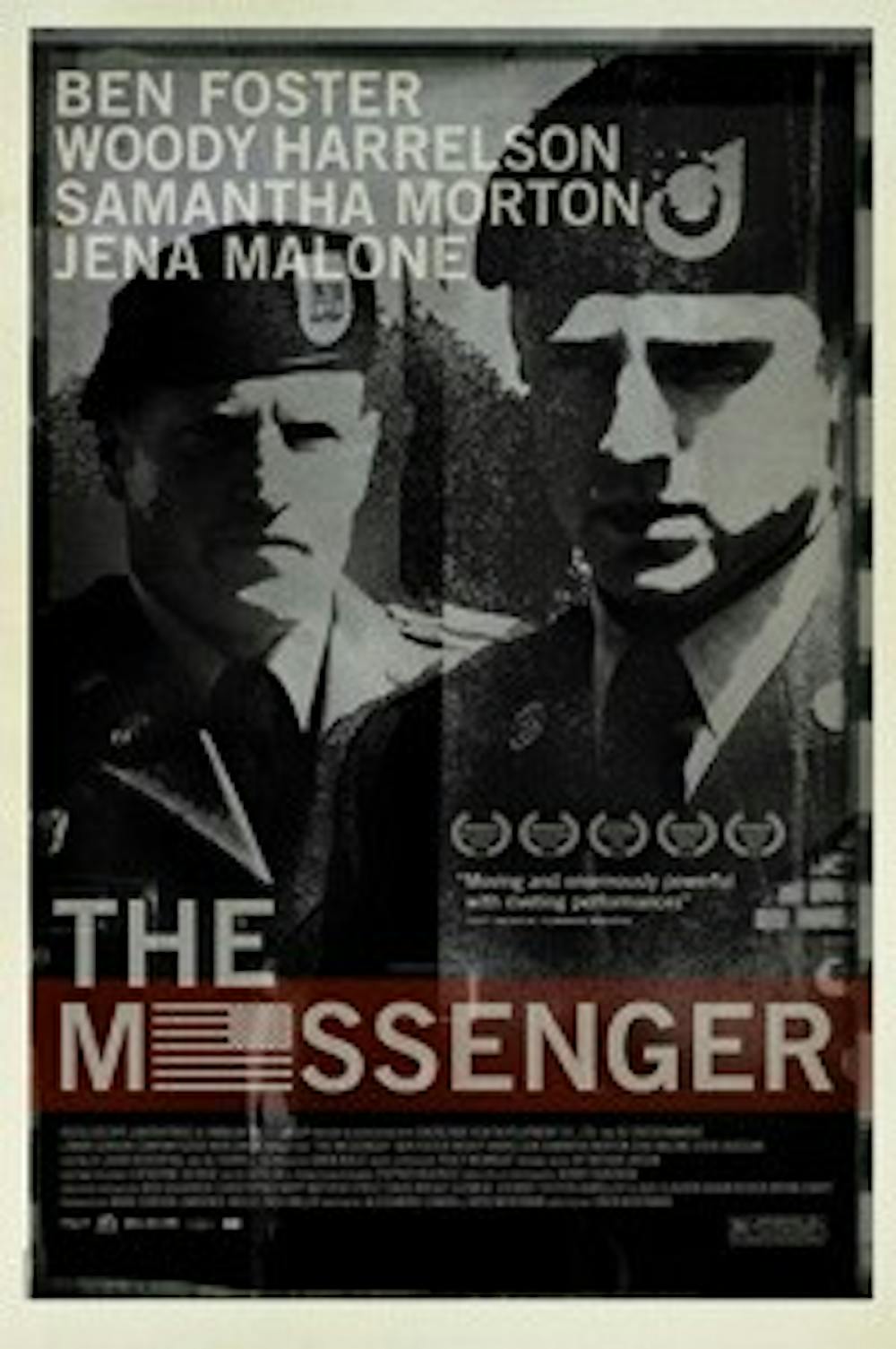Dive verdict: 4 of 5 stars
2009 will be remembered, at least in part, as the year American cinema finally turned its gaze on a near decade of warfare in the Middle East. “Brothers” and “The Hurt Locker” were both good, but the last to get to Chapel Hill, Oren Moverman’s “The Messenger,” is the most unique, most important and, if you ask me, best of them all.Staff Sergeant Will Montgomery (Ben Foster) is a veteran returned from Iraq. A supposed act of heroism earned him shrapnel in his left eye and a trip home, where he is bewildered to find himself assigned to the Casualty Notification Service with Capt. Tony Stone (Woody Harrelson, one of Hollywood’s most underrated actors).
In the CNS, Will has the burden of delivering the news to the families of dead soldiers, a task all the more difficult because of his strict instructions not to mince words, touch the bereaved or generally act like a sympathetic human at all.
>These are the door-to-door “angels of death,” a role that Foster nails with his stone-cold face and priceless grimace. The knock on the door brings utter dread, as Will finds pregnant girlfriends and wailing mothers inside. There are agonizing moments in front of every house, and each confrontation brings fresh pain. It just never gets easier. Not emotionally, at least.
What sets “The Messenger” apart from “The Hurt Locker” is not only the incredible, naturalistic acting from Foster and Harrelson, as well as Samantha Morton and Steve Buscemi, but also the increased relevance for civilian audiences. The characters in this movie suffer from a different kind of maladjustment than the strictly psychological that we see in other movies on the Iraq war. Will and Stone are not special head cases; they’re normal soldiers who have lost touch with their emotions.
In the first scene, a doctor drops dilating fluid in Will’s eye, and like contagious yawns, we blink with him. It’s a reflex test of our sympathies, and it translates later on into our ability to identify with other people and their struggles. It’s an affecting moment that sets the tone for the rest of this stirring movie.
Contact the Diversions Editor at dive@unc.edu



